The BC Womens’ Center brings Eve Ensler’s ‘The Good Body’ to Devlin 008.
Pick up any “women’s interest” magazine and flip through any of its glossy contents—pages will be embossed with “10 Tricks for a Flatter Belly” and “5 Foods that Wreck Havoc on Your Skin.” Alongside such adverts are articles urging its readership to “Love Your Curves” and “Embrace Your Inner Beauty.”
The Good Body, a play by Eve Ensler (author of The Vagina Monologues) questions this paradox of womanhood. Through humor and wit, the play brings issues of body image to new light. Directed by Samantha Gordon, LGSOE ’16, this year’s BC production of The Good Body—presented by the Women’s Center—featured a series of Ensler’s monologues performed by 14 of Boston College’s female students. The realism and personal struggle of Ensler’s writing, as well as the strong performances by the cast members, brought life and poignancy to the staged reading.
The monologues themselves arose from discussions with women of diverse backgrounds, charting issues with self-image transcending borders and cultures. The Good Body focuses on Eve’s battle with her “less-than-flat, post-40s stomach.”
“What I can’t believe is that me, a radical feminist for nearly 30 years, could spend this much time thinking about my stomach,” says Ensler (Haein Kang, A&S ’16, reciting Ensler’s work). In one of the opening lines of the play, Ensler sets the stage for preoccupation with “the good body.” She explains that from growing up in the 1950s to today, definitions of what it means to be “good” has changed over time but the expectation that all women should be “good” has not. In Ensler’s case, she cites her stomach as her biggest obstacle to achieving “goodness.” The play moves from Ensler’s personal struggle with negative body image to larger conversations with women who nip, tuck, and tighten parts of their body to be considered beautiful.
“Everywhere the women I meet hate one part of their body and dedicate their lives to fixing it,” says Eve (Sophie Heath, A&S ’18) as she embarks on a journey towards body acceptance, framing cross-cultural experience with autobiographical details. In a clash of culture, nationality, age, and race, Eve uncovers body shame and self-criticism in the most unlikely of places.
Bernice (Marwa Eltahir, A&S ’17), a teenage fat camp attendee, bemoans the plight of overweight women who have to work harder than thin women to keep men. Meanwhile, Carmen (Isabel Guillen, A&S ’15), is a Puerto Rican woman from Brooklyn who believes people “take up residency in your body parts” and cites her mother as the source of her body shame, as she only lost the weight when her mother died. Even Nina (Samantha Costanzo, A&S ’15), an Italian woman whose thin body is coveted by Eve, explains that only breast reduction surgery gave her the freedom to run and play as she used to.
From Botox injections to women in burqas, Ensler uncovers that although these women may not share a language or a country, the common thread among them is their fixation on improving their bodies. In her journey, Eve encounters supermodel Isabella Rossellini (Sydney Sabean, A&S ’16) who was fired by Lancome at the age of 40, and women in Afghanistan living under the threat of the Taliban, willing to risk their lives for the taste of ice cream. In doing so, she gradually moves towards body acceptance by stepping off the treadmill.
The diversity of the women in Ensler’s play shows that negative body image and struggling to meet the beauty standard is cross-cultural—most women can find fault in one body part that they wish to perfect. While encouraging women to celebrate their flaws and their “roundness,” Ensler contests the belief that being “good” is being beautiful. Rather than telling a woman she “deserves” to feel pretty, her value should not be correlated with her appearance.
The theme of the play rests on its first question: “What is the ‘Good Body?’” From the breadth of Ensler’s experiences with women of all different shapes and sizes, the performance culminates with the assertion that there is not one true “good body” but that all bodies are inherently good.
“Maybe being good isn’t about getting rid of anything,” she says. “Maybe being good is about learning to live in the mess, in the frailties, in the flaws, in the failures.”
Featured Image by John Wiley / Heights Editor


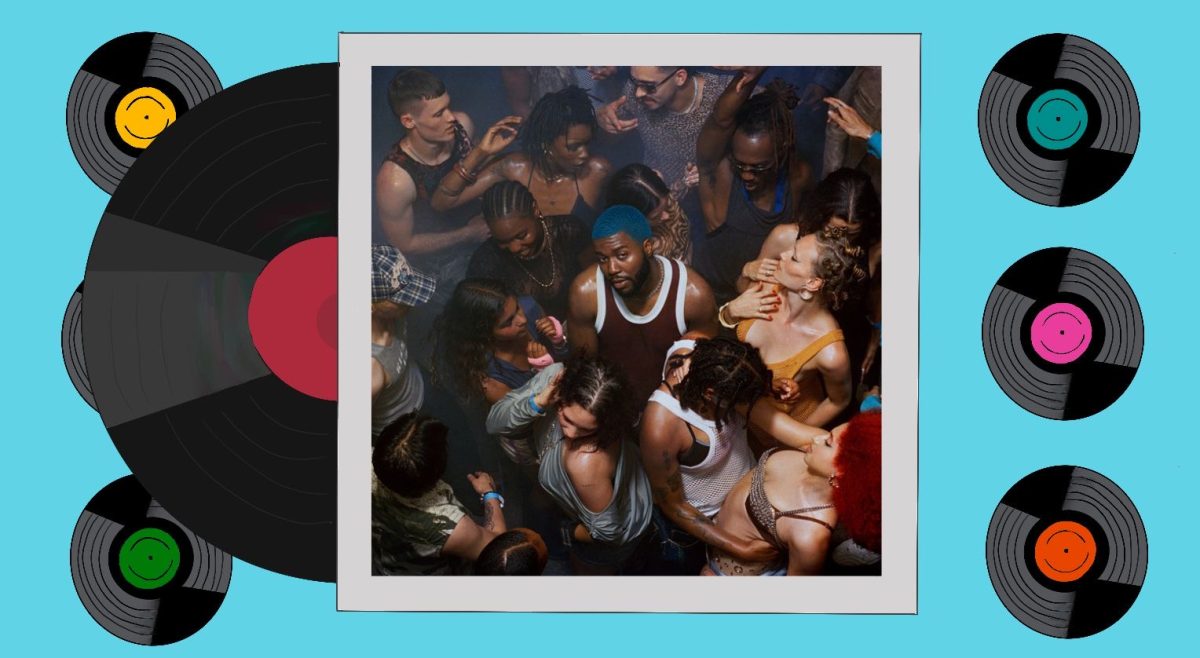
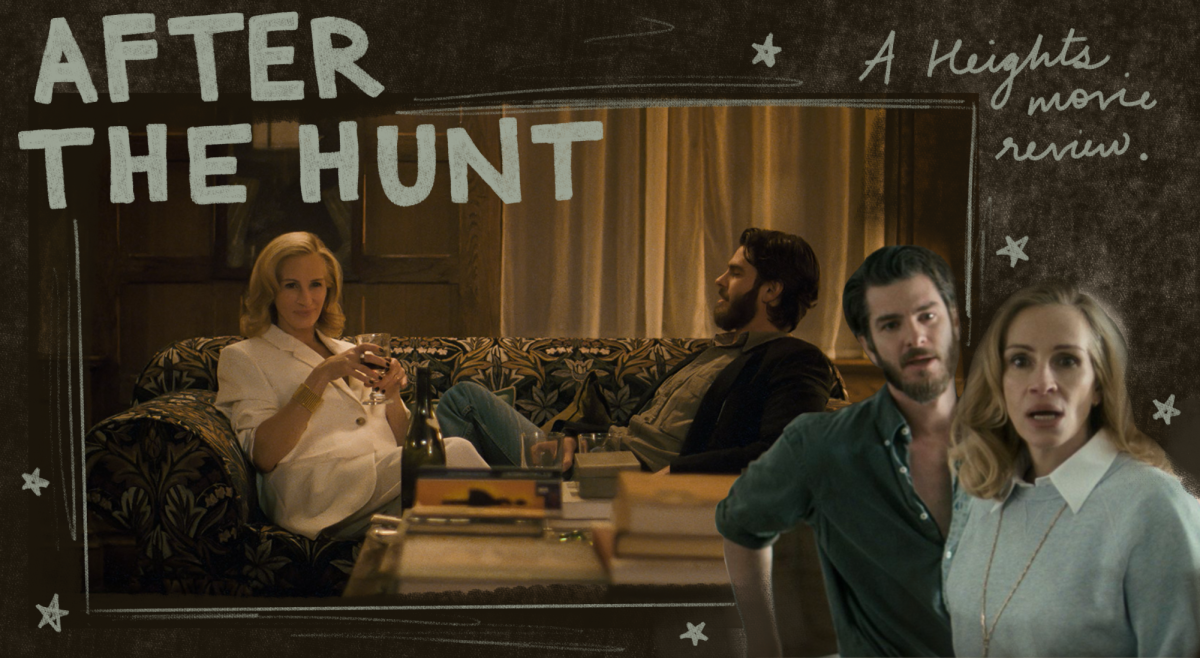




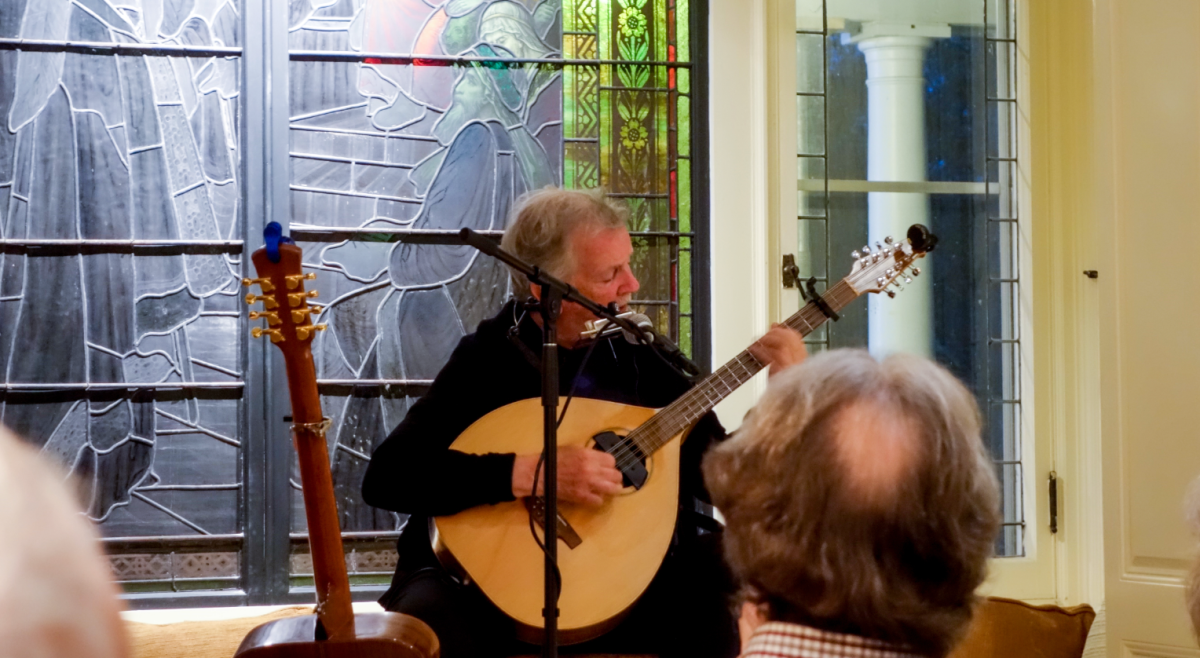
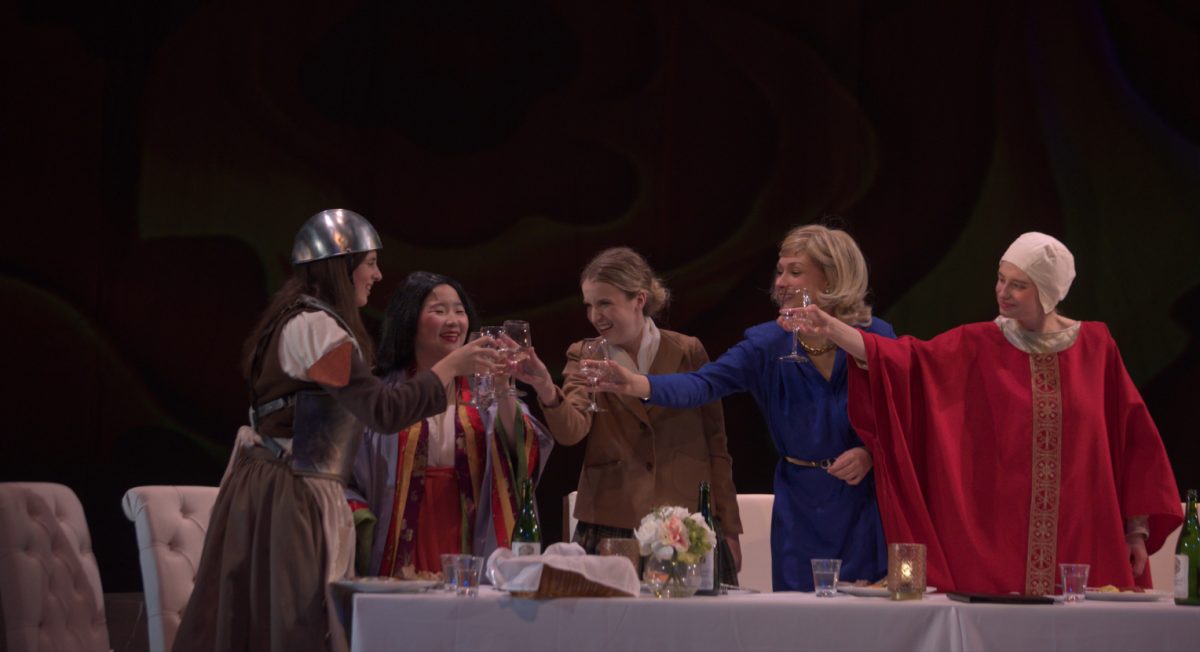
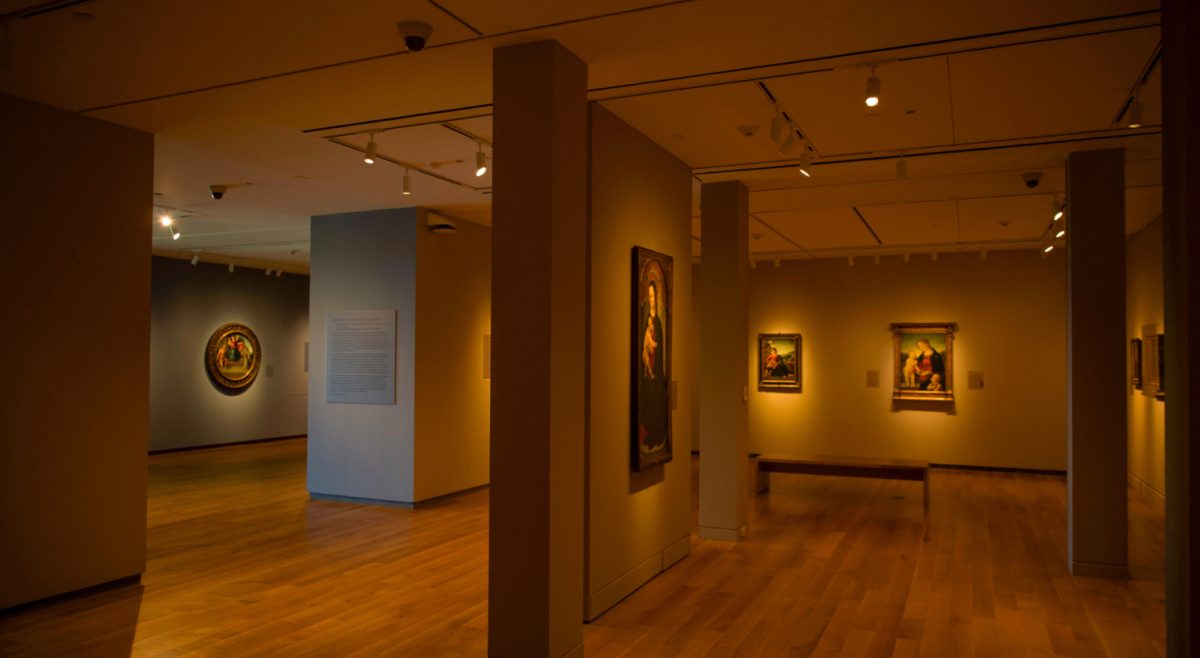
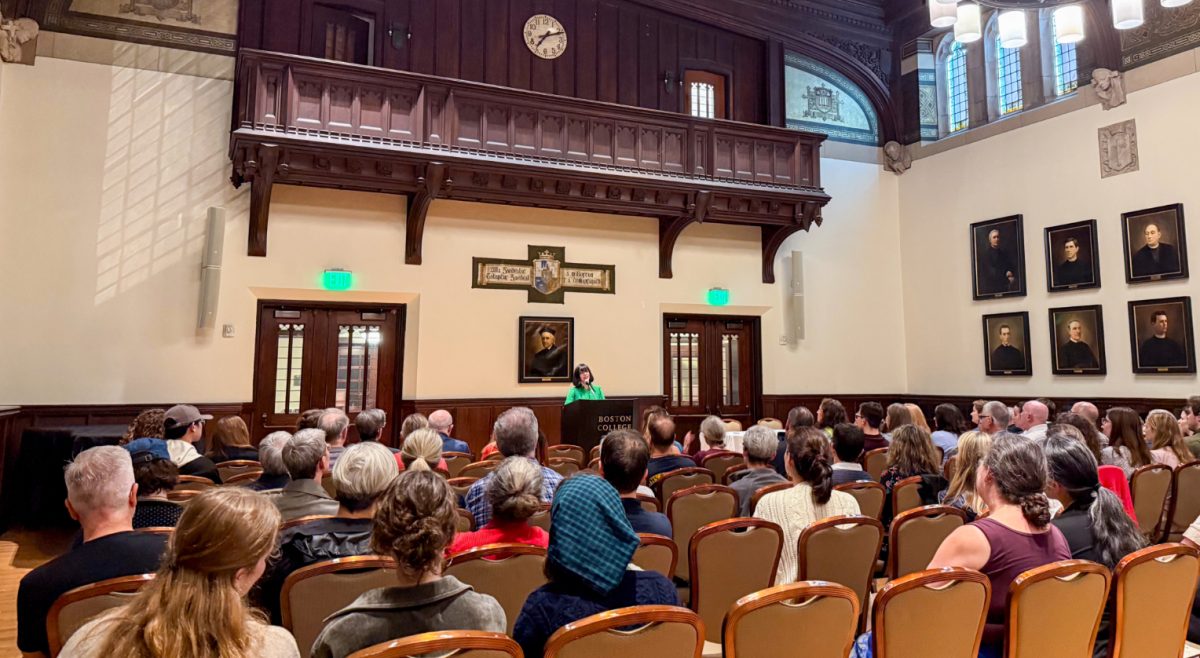
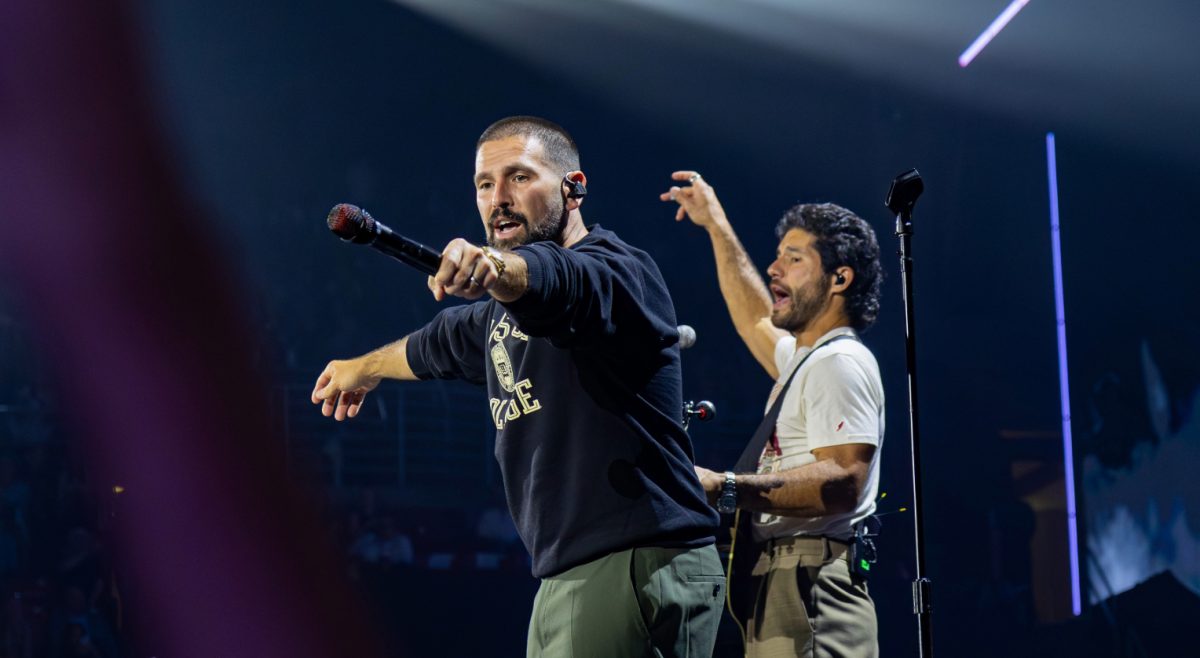

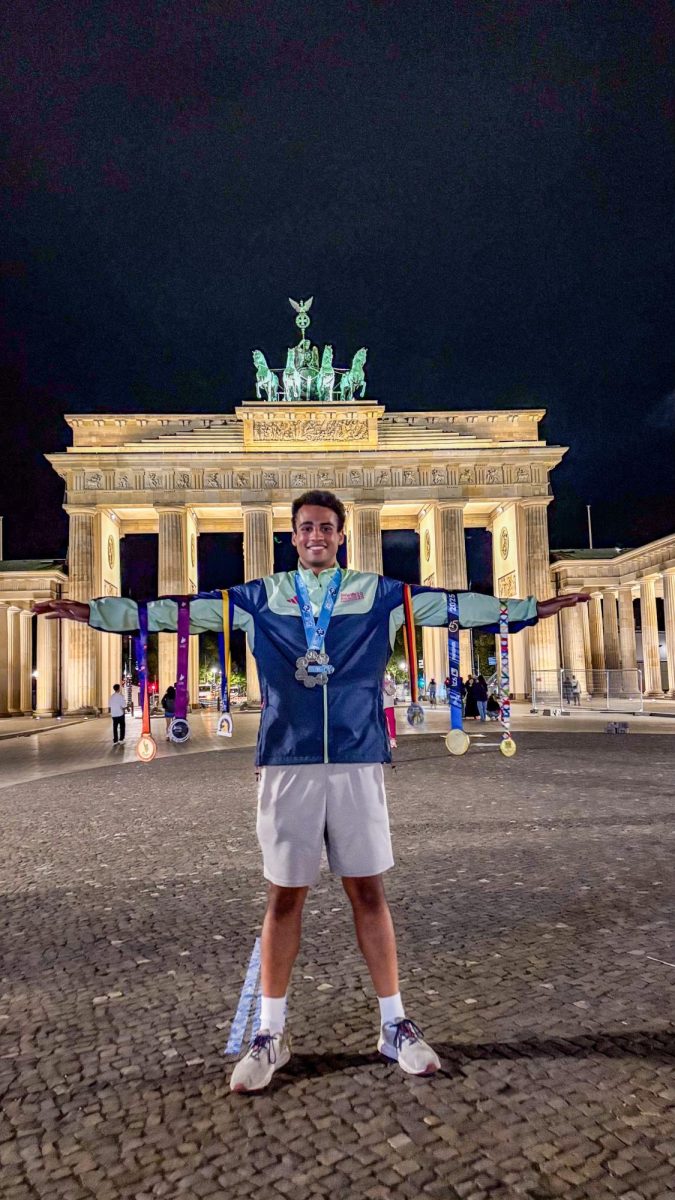
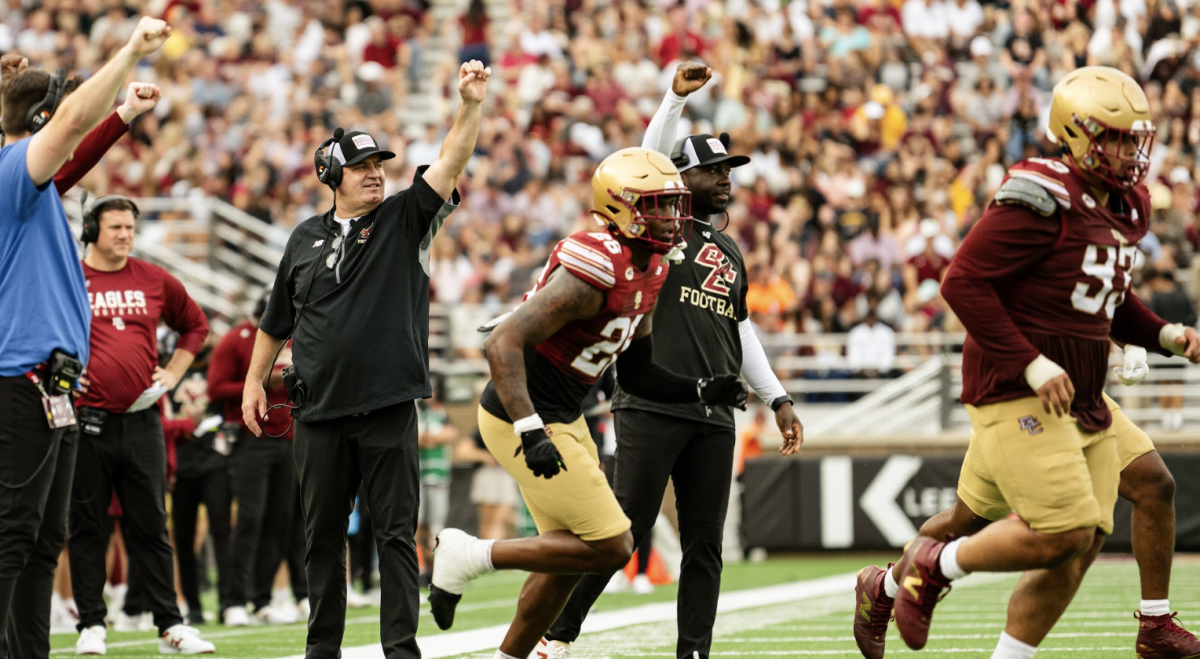



Michelle Peffen • Feb 27, 2015 at 5:10 pm
I saw The Vagina
Monologues, written by Eve Ensler. That show was great and from this
article, the show on The Good Body
was as well. I wish I could have attended it! Even though I didn’t, I do agree
with what is presented by the show as told through this article. I think that
women have different standards they are expected to hold up – one being the ‘perfect’
body. But, what is the good or perfect body? Everyone has different theories
and different perspectives on what you should look like. This is a huge problem
in the world today because I haven’t met a single woman that does not want to
change at least one thing about herself. I think this problem has been going on
for a long time but it is something that we need to change. We need to accept
every body type. We need to accept the super skinny and the rounder, we need to
accept the tall and the short, the blonde and the brunette. Before we accept
others, though, we should being by accepting ourselves. I admit that it is hard
to say “I love my body” but we need to. We need to learn to accept ourselves
the way we are and not want to change anything. Everyone is beautiful in their
own way and we need to learn to accept that. Each person has their own
preferences towards complete beauty but we still need to accept all people as
beautiful! We need to be more confident in our looks because we are all
beautiful.